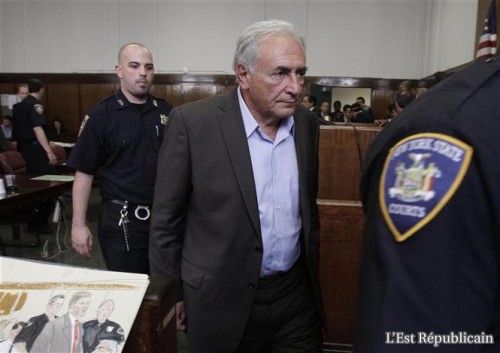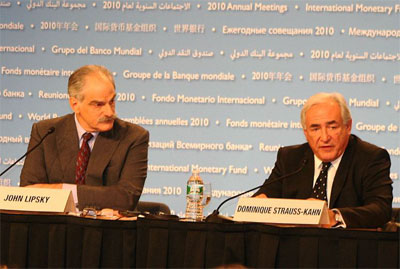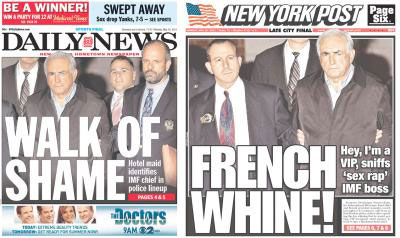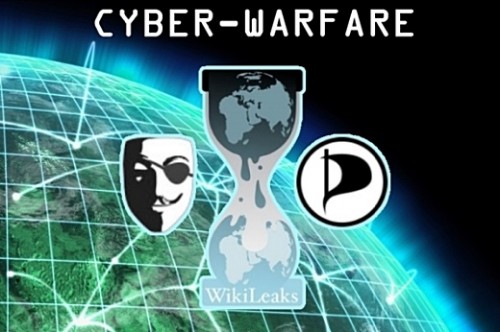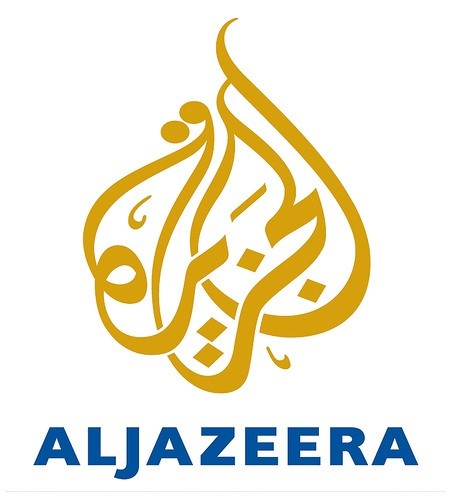Che la prorompente ascesa di svariati paesi abbia assestato un duro colpo all’assetto mondiale incardinato sull’unipolarismo statunitense è un fatto che pochi oseranno contestare.
La resurrezione della Russia sotto l’autoritaria egida di Putin affiancata all’affermazione della Cina al rango di grande potenza costituiscono i due principali fattori destabilizzanti in grado di ridisegnare i rapporti di forza a livello internazionale.
Se la Russia, tuttavia, ha potuto contare sulla monumentale eredità sovietica, la Cina ha fatto registrare un progresso politico ed economico assolutamente straordinario.
Il lungimirante progetto di ristrutturazione messo a punto in passato da Deng Xiao Ping ha inoppugnabilmente svolto un ruolo cruciale nell’odierno riscatto cinese e tracciato un solco profondo entro il quale sono andati a collocarsi tutti i suoi successori, da Jang Zemin a Hu Jintao, passando per Jang Shangkun.
Come tutti i paesi soggetti a forte sviluppo economico, la Cina si trova a dover soddisfare una crescente seppur già esorbitante domanda di idrocarburi.
Per farlo, è costretta ad estendere la propria capacità di influenza ai paesi produttori Medio Oriente e a quelli dell’Africa orientale attraverso i territori dell’Asia centrale e le vie marittime che collegano il Golfo Persico al Mar Cinese Meridionale.
In vista di tale scopo, la diplomazia cinese ha escogitato una efficace strategia diplomatica imperniata sul principio della sussidiarietà internazionale e profuso enormi sforzi per dotarsi di un esercito capace di sostenere gli ambiziosi progetti egemonici ideati dal governo di Pechino.
L’Organizzazione per la Cooperazione di Shangai – che raggruppa Cina, Russia, Kazakistan, Kirghizistan, Tajikistan, e Uzbekistan e che annovera Iran, Pakistan, India e Mongolia in qualità di osservatori – patrocinata dalla Cina ha promosso una partnership strategica tra i paesi aderenti ad essa atta a favorire un’integrazione continentale in grado di far ricadere cospicui vantaggi su tutto l’insieme.
In aggiunta, va sottolineato il fatto che è in fase di consolidamento l’asse Mosca – Pechino nello scambio tra armamenti e petrolio.
La Cina acquista gran parte delle proprie forze militari dalla Russia dietro congrui conguagli e costituisce il primo cliente per il mercato bellico russo.
Caldeggia la realizzazione di una pipeline che attinga dai giacimenti russi e faccia approdare petrolio ai terminali cinesi, trovando però l’opposizione della Russia, incapace di far fronte tanto alla domanda cinese quanto a quella europea.
In compenso, Mosca sostiene la realizzazione del cosiddetto “gasdotto della pace”, un corridoio energetico finalizzato a far affluire il gas iraniano in territorio cinese attraverso Pakistan ed India, in grado di orientare gli idrocarburi iraniani verso est e consentendo in tal modo alla Russia di assestarsi su una posizione assolutamente dominante ed incontrastata sul solo mercato europeo.
Ruggini vecchie e nuove hanno impedito la rapida realizzazione dei progetti in questione portando il governo di Pechino ad individuare soluzioni alternative.
Non a caso, uno dei grandi scenari in cui si gioca attualmente la partita tra gli Stati Uniti in declino ma decisi a vender cara la pelle e la rampante Cina in piena ascesa economica è l’Africa, che grazie alle sue immense risorse di idrocarburi (e materie prime) costituisce l’oggetto del desiderio tanto dell’una quanto dell’altra potenza.
La Storia insegna sia che la scoperta di giacimenti di idrocarburi nelle regioni povere costituisce il reale movente dei conflitti che vedono regolarmente fazioni opposte combattere aspramente, quasi sempre a danno della popolazione, per garantirsene il controllo sia che dietro di esse si celano direttamente o indirettamente quelle grandi potenze interessate ad estendere la propria egemonia geopolitica.
Sudan, Nigeria, Congo, Angola, Yemen, Myanmar (l’elenco è sterminato).
La penetrazione di Pechino in Africa è proceduta gradualmente, ma il consolidamento di essa è stato reso possibile solo grazie ai passi da gigante fatti registrare dalla marina cinese.
Dietro suggerimento dell’influente ammiraglio Liu Huaqing, il governo di Pechino aveva infatti sostenuto il progetto riguardante l’adozione di sottomarini classe Kilo e di incrociatori classe Sovremenniy, oltre al potenziamento dei sistemi di intelligence e delle tecnologie militari necessarie a supportare una flotta efficiente ed attrezzata di tutto punto per fronteggiare qualsiasi tipo di minaccia.
Il Primo Ministro Hu Jintao e suoi assistenti di governo hanno inoltre potuto approfittare della risoluzione ONU di fine 2008 finalizzata alla repressione della pirateria del Corno d’Africa per insinuare la propria flotta fino al Golfo Persico e al largo del litorale di Aden, don licenza di sconfinare in aperto Mediterraneo attraverso il Canale di Suez.
La pirateria, ben supportata dal caos politico che governa la Somalia, in questi ultimi anni ha esteso consistentemente il proprio raggio d’azione arrivando a lambire le coste dell’Indonesia e di Taiwan ad est e del Madagascar a sud.
Ciò ha effettivamente sortito forti ripercussioni sui traffici marittimi internazionali, portando circa un terzo delle cinquemila imbarcazioni commerciali che transitavano annualmente per quella via a propendere per il doppiaggio del Capo di Buona Speranza pur di evitare di imboccare il Canale di Suez.
Ciò ha comportato un dispendio maggiore di denaro dovuto alla dilatazione dei tempi di trasporto e rafforzato le ragioni della permanenza della flotta cinese lungo le rotte fondamentali.
Tuttavia l’opera di contrasto alla pirateria – sui cui manovratori e membri effettivi ben poca luce è stata fatta – si colloca in un piano del tutto secondario nell’agenda cinese, interessata prioritariamente ad assumere il controllo delle rotte marittime fondamentali e dei paesi che si su di esse si affacciano.
Di fondamentale importanza a tale riguardo risultano gli stretti di Malacca e Singapore, specialmente in forza della quantità di petrolio che vi transita, ben tre volte superiore a quella che transita attraverso il Canale di Suez.
Circa quattro quinti dei cargo petroliferi provenienti dal Golfo Persico destinati alla Cina passa per lo Stretto di Malacca, mentre gran parte di quelli diretti al Giappone passano per quello di Singapore.
E’ interessante notare come, di converso, gli Stati Uniti e i loro alleati abbiano agito pesantemente per destabilizzare i paesi che costituiscono l’asse portante della strategia cinese.
La secessione del Sudan del Sud dal governo centrale di Khartoum ha minato l’integrità della Repubblica del Sudan privandola dell’area ricca di petrolio e compromettendone gran parte degli introiti legati alle esportazioni.
Nel fomentamento dei dissidi si è intravista la mano pesante di Israele, che per ammissione dello stesso ex direttore dello Shin Bet Avi Dichter aveva sostenuto attivamente le forze indipendentiste del sud.
Un’operazione atta a privilegiare le etnie e le tribù meridionali invise alla preponderanza araba del resto del paese, che segna una logica soluzione di continuità rispetto alla classica strategia antiaraba propugnata da Tel Aviv, interessata costantemente a stringere legami con i paesi regionali non arabi.
Gli Stati Uniti, dal canto loro, avevano rifornito di aiuti i paesi limitrofi al Sudan affinché sovesciassero il governo centrale di Khartoum fin dall’era Clinton, mentre attualmente si sono “limitati” a stanziare corpose iniezioni di denaro a contractors privati incaricati di addestrare le frange secessioniste.
La Cina era il principale sponsor del presidente sudanese Omar Hassan El Bashir, con il quale erano stati regolarmente barattati tecnologie, armamenti e infrastrutture in cambio di petrolio.
Un altro paese fortemente destabilizzato in relazione alla sua posizione strategicamente cruciale è lo Yemen, cui gli Stati Uniti hanno richiesto con insistenza la concessione dell’isola di Socotra per installarvi una base militare che, se unita alla Quinta Flotta stanziata nel vicino Bahrein, formerebbe la principale forza militare dell’intero Golfo Persico.
L’isola si situa a metà strada tra il Mar Rosso e l’Oceano Indiano ed occupa una posizione che coincide con il crocevia delle rotte commerciali che collegano il Mediterraneo, mediante il Canale di Suez, al Golfo di Aden e al Mar Cinese Meridionale.
Myanmar è stato invece oggetto di una vera e propria rivoluzione colorata, quella “color zafferano” che deve il suo nome al colore delle vesti indossate dai monaci buddhisti protagonisti delle rivolte antigovernative.
Non è un segreto che la giunta militare guidata dall’enigmatico generale Than Shwe si sia resa responsabile di efferatezze che la rendono difficilmente difendibile, ma siccome gli stati non hanno mai conformato il proprio operato alle tavole della legge morale non stupisce che il sostegno statunitense accordato alle frange rivoltose non abbia nulla a che vedere con la tutela dei diritti umani, ma risponda a ben precisi obiettivi geopolitici.
Il dominio degli stretti di Malacca e Singapore consente infatti di esercitare un controllo diretto sugli approvvigionamenti energetici destinati alla Cina.
La Cina ha però effettuato le proprie contromosse, fornendo il proprio appoggio politico all’isolato governo di Rangoon e raggiungendo con esso accordi commerciali e diplomatici di capitale importanza strategica.
Pechino ha rifornito la giunta militare al potere di armamenti e tecnologie militari, ha stanziato fondi sostanziosi per la costruzione di numerose infrastrutture come strade, ferrovie e ponti.
In cambio, ha ottenuto il diritto di sfruttare i ricchi giacimenti gasiferi presenti sui fondali delle acque territoriali ex birmane oltre a quello di dislocare le proprie truppe e di installare basi militari nel territorio del Myanmar.
Alla luce dei fatti, risulta che il Myanmar corrisponda a un segmento fondamentale del “filo di perle” concepito da Pechino, l’obiettivo strategico che prevede l’installazione di basi militari in tutti i paesi del sud – est asiatico che si affacciano sull’oceano indiano.
Tale obiettivo è oggettivamente favorito dall’evoluzione dei rapporti tra Pakistan e Stati Uniti, in evidente rotta di collisione.
Islamabad ha mal digerito tanto le accuse di connivenza con il terrorismo rivolte ai propri servizi segreti (ISI) quanto le sortite unilaterali compiute dai droni statunitensi in territorio pakistano e ha giocato sulla centralità mediatica di cui è stato oggetto il poco credibile blitz che avrebbe portato all’uccisione di Osama Bin Laden per esternare pubblicamente la propria ferma protesta nei confronti dell’atteggiamento di Washington, che ha a sua volta replicato aspramente per bocca del Segretario alla Difesa Robert Gates e poi per il suo successore Leon Panetta.
Ciò ha spinto Pechino a scendere in campo al fianco del Pakistan, suscitando il plauso del Presidente Ali Zardari.
Tuttavia le relazioni tra Cina e Pakistan erano in fase di consolidamento da svariati mesi e hanno prodotto risultati letteralmente allettanti.
La realizzazione del porto sia civile che militare di Gwadar, dal quale è possibile dominare l’accesso al Golfo Persico, è indubbiamente il più importante di essi.
Il progetto in questione comprende inoltre la costruzione di una raffineria e di una via di trasporto in grado di collegare lo Xinjiang al territorio pakistano.
Un valore aggiunto al porto di Gwadar è già stato inoltre conferito dall’intesa raggiunta con Islamabad e il governo di Teheran relativa alla realizzazione di un corridoio energetico destinato a far approdare il gas iraniano ai terminali cinesi.
In tal modo lo sbocco portuale di Gwadar promette di divenire una dei principali snodi commerciali per l’energia iraniana, attirando Teheran verso l’orbita cinese e consentendo quindi al governo di Pechino di inanellare un’ulteriore gemma alla propria “collana di perle”.
La chiara vocazione eurasiatica del progetto cinese ha ovviamente suscitato forti preoccupazioni presso Washington, che non mancherà di lastricare di mine la nuova “via della seta” finalizzata a compattare il Vicino e Medio Oriente all’Asia orientale e suscettibile di sortire forti contraccolpi sulla politica energetica europea, destinata a legarsi indissolubilmente alla Russia.





 del.icio.us
del.icio.us
 Digg
Digg.jpg)

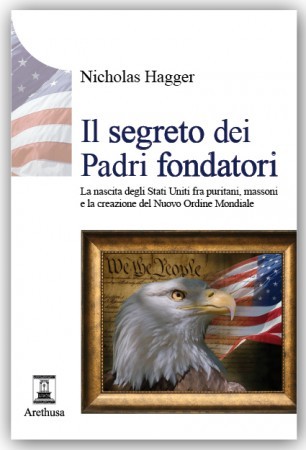 Gli Stati Uniti sono un groviglio che nasconde un intrigo. Il groviglio è la mentalità fanaticamente esclusivista che recarono con sé i Padri pellegrini che fondarono, all’inizio del Seicento, le prime comunità puritane del New England. Essi erano febbrilmente convinti di dover portare nel mondo la verità biblica, che fosse con le buone o con le cattive. L’intrigo è invece la congiura massonica di sovversione mondiale del potere, che ben presto si saldò al puritanesimo nel corso del Settecento, andando a costituire un’esplosiva miscela di intollerante invasività. Noi sappiamo che, da quei tempi lontani, un unico disegno fondamentalista muove all’azione gli eredi di quella duplice formula puritano-massonica: la conquista dichiarata del mondo, l’assoggettamento delle popolazioni del pianeta al potere degli “eletti” di Geova e del Grande Architetto, la costruzione del tempio universale di Salomone.
Gli Stati Uniti sono un groviglio che nasconde un intrigo. Il groviglio è la mentalità fanaticamente esclusivista che recarono con sé i Padri pellegrini che fondarono, all’inizio del Seicento, le prime comunità puritane del New England. Essi erano febbrilmente convinti di dover portare nel mondo la verità biblica, che fosse con le buone o con le cattive. L’intrigo è invece la congiura massonica di sovversione mondiale del potere, che ben presto si saldò al puritanesimo nel corso del Settecento, andando a costituire un’esplosiva miscela di intollerante invasività. Noi sappiamo che, da quei tempi lontani, un unico disegno fondamentalista muove all’azione gli eredi di quella duplice formula puritano-massonica: la conquista dichiarata del mondo, l’assoggettamento delle popolazioni del pianeta al potere degli “eletti” di Geova e del Grande Architetto, la costruzione del tempio universale di Salomone.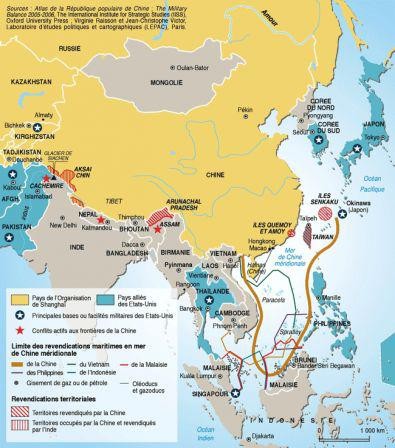




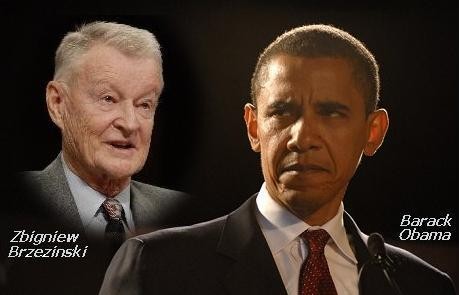
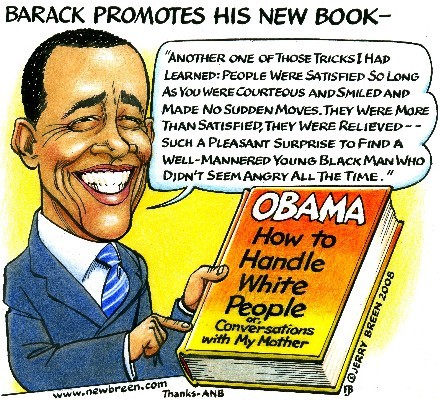 FB : Je ne dirais pas qu’il n’est qu’une simple marionnette. Je me réfère notamment à des informations accessibles à tout un chacun, qui ont été dûment documentées et vérifiées et qui proviennent des travaux d’un reporter et journaliste d’investigation australien, réputé fort sérieux et couronné de quelques prix. Il s’agit de John Pilger. Celui-ci a pu prouver qu’après sa collaboration avec Brzezinski à la Columbia Université, Obama a travaillé pour une organisation camouflée de la CIA, la « Business International Corporation », qui aurait également financé le coût énorme de ses études et apuré ses dettes auprès de son université. Je pense que l’on peut poser, en toute vraisemblance, l’hypothèse qu’Obama a travaillé pour la CIA.
FB : Je ne dirais pas qu’il n’est qu’une simple marionnette. Je me réfère notamment à des informations accessibles à tout un chacun, qui ont été dûment documentées et vérifiées et qui proviennent des travaux d’un reporter et journaliste d’investigation australien, réputé fort sérieux et couronné de quelques prix. Il s’agit de John Pilger. Celui-ci a pu prouver qu’après sa collaboration avec Brzezinski à la Columbia Université, Obama a travaillé pour une organisation camouflée de la CIA, la « Business International Corporation », qui aurait également financé le coût énorme de ses études et apuré ses dettes auprès de son université. Je pense que l’on peut poser, en toute vraisemblance, l’hypothèse qu’Obama a travaillé pour la CIA.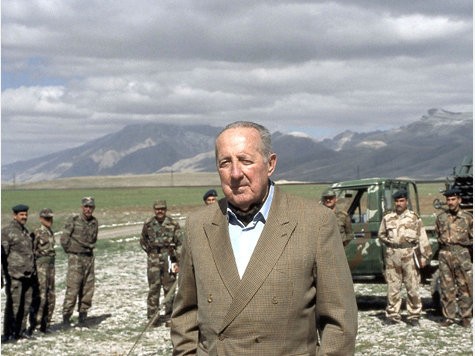
 Q. : Après la mort d’Ousama Ben Laden, le terrorisme islamiste connaîtra-t-il un ressac ? Al-Qaeda est-il désormais un mouvement sans direction ?
Q. : Après la mort d’Ousama Ben Laden, le terrorisme islamiste connaîtra-t-il un ressac ? Al-Qaeda est-il désormais un mouvement sans direction ?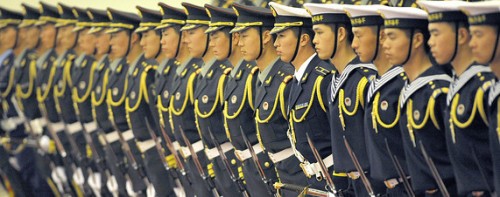
 Elsa (niet: Elza) Dewette zag op 12 april 1903 te Sint-Amandsberg bij Gent het levenslicht. Ze was de kleindochter van Eduard Blaes (1846-1909), een verdienstelijke componist, dirigent en muziekleraar, bij wie haar vader pianoles had gevolgd. Afgaande op haar eigen getuigenis hoorde ze haar vader en haar grootvader vaak discuteren over de filosoof Friedrich Nietzsche (1844-1900), over de dichter Heinrich Heine (1797-1856) en over de beroemde componist Richard Wagner (1813-1883). Volgens haar latere leerling Oscar Van Malder, zouden die discussies "een diepgaande invloed uitoefenen op haar later leven en werken"; verheft hij een hypothese niet tot de rang van een feit?
Elsa (niet: Elza) Dewette zag op 12 april 1903 te Sint-Amandsberg bij Gent het levenslicht. Ze was de kleindochter van Eduard Blaes (1846-1909), een verdienstelijke componist, dirigent en muziekleraar, bij wie haar vader pianoles had gevolgd. Afgaande op haar eigen getuigenis hoorde ze haar vader en haar grootvader vaak discuteren over de filosoof Friedrich Nietzsche (1844-1900), over de dichter Heinrich Heine (1797-1856) en over de beroemde componist Richard Wagner (1813-1883). Volgens haar latere leerling Oscar Van Malder, zouden die discussies "een diepgaande invloed uitoefenen op haar later leven en werken"; verheft hij een hypothese niet tot de rang van een feit? Daarna volgde de grote stap, die erop gericht was gans Vlaanderen te veroveren. Met Herman Teirlinck (1879-1967) als animator begon in Aalst een ware triomftocht. Het heeft geen zin de vele successen op te sommen, daar ze in de kranten breed uitgesmeerd zijn geworden. De uitzondering bevestigt de algemene regel en dus maak ik twee uitzonderingen: in 1939 voerden op de Grote Markt te Kortrijk 1.500 danseressen en dansers 10 dagen lang het Vredesspel op en in 1944 grepen talrijke opvoeringen van Tijl Uilenspiegel op muziek van Richard Strauss (1864-1949) plaats. Bij de Bevrijding kende haar vader moeilijkheden omdat een hogere Duitse officier hem een bezoek had gebracht (cf. infra). Zij zelf reisde begin 1946 naar de U.S.A., bezocht er in diverse steden familieleden en vrienden, en hield lezingen in de Engelse taal (cf. infra).
Daarna volgde de grote stap, die erop gericht was gans Vlaanderen te veroveren. Met Herman Teirlinck (1879-1967) als animator begon in Aalst een ware triomftocht. Het heeft geen zin de vele successen op te sommen, daar ze in de kranten breed uitgesmeerd zijn geworden. De uitzondering bevestigt de algemene regel en dus maak ik twee uitzonderingen: in 1939 voerden op de Grote Markt te Kortrijk 1.500 danseressen en dansers 10 dagen lang het Vredesspel op en in 1944 grepen talrijke opvoeringen van Tijl Uilenspiegel op muziek van Richard Strauss (1864-1949) plaats. Bij de Bevrijding kende haar vader moeilijkheden omdat een hogere Duitse officier hem een bezoek had gebracht (cf. infra). Zij zelf reisde begin 1946 naar de U.S.A., bezocht er in diverse steden familieleden en vrienden, en hield lezingen in de Engelse taal (cf. infra).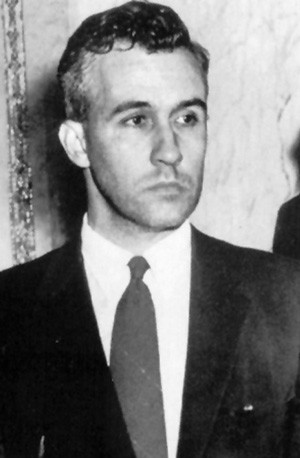 F.P. Yockey werd in 1917 in Chicago geboren. Al vroegtijdig ontpopte hij zich als een goede pianist en gold hij als een begaafde humorist. In de herfst van 1934 kwam hij op de University of Michigan (Ann Arbor) terecht. Hier werd hij uit een Saulus een Paulus, d.w.z. hij gaf zijn pro-communistische overtuiging prijs en werd bij wijze van spreken een Amerikaanse nazi. Die ommezwaai wordt toegeschreven aan zijn lectuur van Der Untergang des Abendlandes, het tweedelige opus magnum van de Duitse historicus en niet-nazi Oswald Spengler (1880-1936), doch het is een uitgemaakte zaak dat hij door de spengleriaans getinte Kulturgeschichte der Neuzeit (3 delen; 1927-31) van de Oostenrijkse Jood Egon Friedell (eig. Friedmann; 1878-1938 [zelfmoord]) tot de overtuiging was gekomen, dat niet materiële factoren, doch ideeën het historisch verloop bepalen. De ironie van het lot heeft dus gewild dat twee eminente Europese niet-nazis onrechtstreeks een Amerikaanse nazi hebben voortgebracht!
F.P. Yockey werd in 1917 in Chicago geboren. Al vroegtijdig ontpopte hij zich als een goede pianist en gold hij als een begaafde humorist. In de herfst van 1934 kwam hij op de University of Michigan (Ann Arbor) terecht. Hier werd hij uit een Saulus een Paulus, d.w.z. hij gaf zijn pro-communistische overtuiging prijs en werd bij wijze van spreken een Amerikaanse nazi. Die ommezwaai wordt toegeschreven aan zijn lectuur van Der Untergang des Abendlandes, het tweedelige opus magnum van de Duitse historicus en niet-nazi Oswald Spengler (1880-1936), doch het is een uitgemaakte zaak dat hij door de spengleriaans getinte Kulturgeschichte der Neuzeit (3 delen; 1927-31) van de Oostenrijkse Jood Egon Friedell (eig. Friedmann; 1878-1938 [zelfmoord]) tot de overtuiging was gekomen, dat niet materiële factoren, doch ideeën het historisch verloop bepalen. De ironie van het lot heeft dus gewild dat twee eminente Europese niet-nazis onrechtstreeks een Amerikaanse nazi hebben voortgebracht!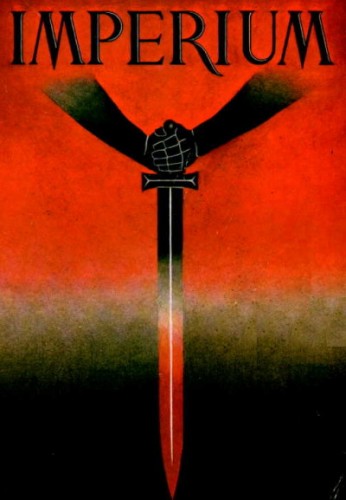 Stimely werd helaas in december 1992 het slachtoffer van aids, zonder "ooit een bladzijde van zijn geplande Yockey biografie" te hebben geschreven.
Stimely werd helaas in december 1992 het slachtoffer van aids, zonder "ooit een bladzijde van zijn geplande Yockey biografie" te hebben geschreven.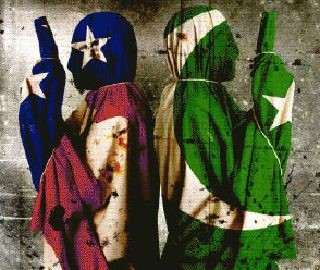 China hat die Vereinigten Staaten offiziell wissen lassen, dass ein von Washington geplanter Angriff auf Pakistan als Akt der Aggression gegen Peking ausgelegt werden wird. Diese unverblümte Warnung ist das erste seit 50 Jahren – den sowjetischen Warnungen während der Berlin-Krise von 1958 bis 1961 – bekannt gewordene strategische Ultimatum, das den Vereinigten Staaten gestellt wird. Es ist ein Anzeichen dafür, dass sich die Konfrontation zwischen den USA und Pakistan zu einem allgemeinen Krieg auszuweiten droht.
China hat die Vereinigten Staaten offiziell wissen lassen, dass ein von Washington geplanter Angriff auf Pakistan als Akt der Aggression gegen Peking ausgelegt werden wird. Diese unverblümte Warnung ist das erste seit 50 Jahren – den sowjetischen Warnungen während der Berlin-Krise von 1958 bis 1961 – bekannt gewordene strategische Ultimatum, das den Vereinigten Staaten gestellt wird. Es ist ein Anzeichen dafür, dass sich die Konfrontation zwischen den USA und Pakistan zu einem allgemeinen Krieg auszuweiten droht. Am Tag vor der Grundsatzrede des amerikanischen Präsidenten Barack Obama zur Nahostpolitik am Donnerstag, dem 19. Mai, äußerte der russische Präsident Dmitrij Medwedew eine deutliche Warnung in Richtung Washington. Auch wenn der Inhalt der Warnung in keinem direkten Zusammenhang zum Nahen und Mittleren Osten steht, zeigt der Zeitpunkt doch, dass sie eine große Bedeutung für die Region besitzt. Sollte es im Falle des neuen Raketenabwehrschildes nicht zu einer Einigung kommen, erklärte der russische Präsident, könnte dies dazu führen, dass sich seine Regierung aus dem neuen Abrüstungsvertrag zurückziehe und in einen neuen Kalten Krieg gegen den Westen eintrete.
Am Tag vor der Grundsatzrede des amerikanischen Präsidenten Barack Obama zur Nahostpolitik am Donnerstag, dem 19. Mai, äußerte der russische Präsident Dmitrij Medwedew eine deutliche Warnung in Richtung Washington. Auch wenn der Inhalt der Warnung in keinem direkten Zusammenhang zum Nahen und Mittleren Osten steht, zeigt der Zeitpunkt doch, dass sie eine große Bedeutung für die Region besitzt. Sollte es im Falle des neuen Raketenabwehrschildes nicht zu einer Einigung kommen, erklärte der russische Präsident, könnte dies dazu führen, dass sich seine Regierung aus dem neuen Abrüstungsvertrag zurückziehe und in einen neuen Kalten Krieg gegen den Westen eintrete.